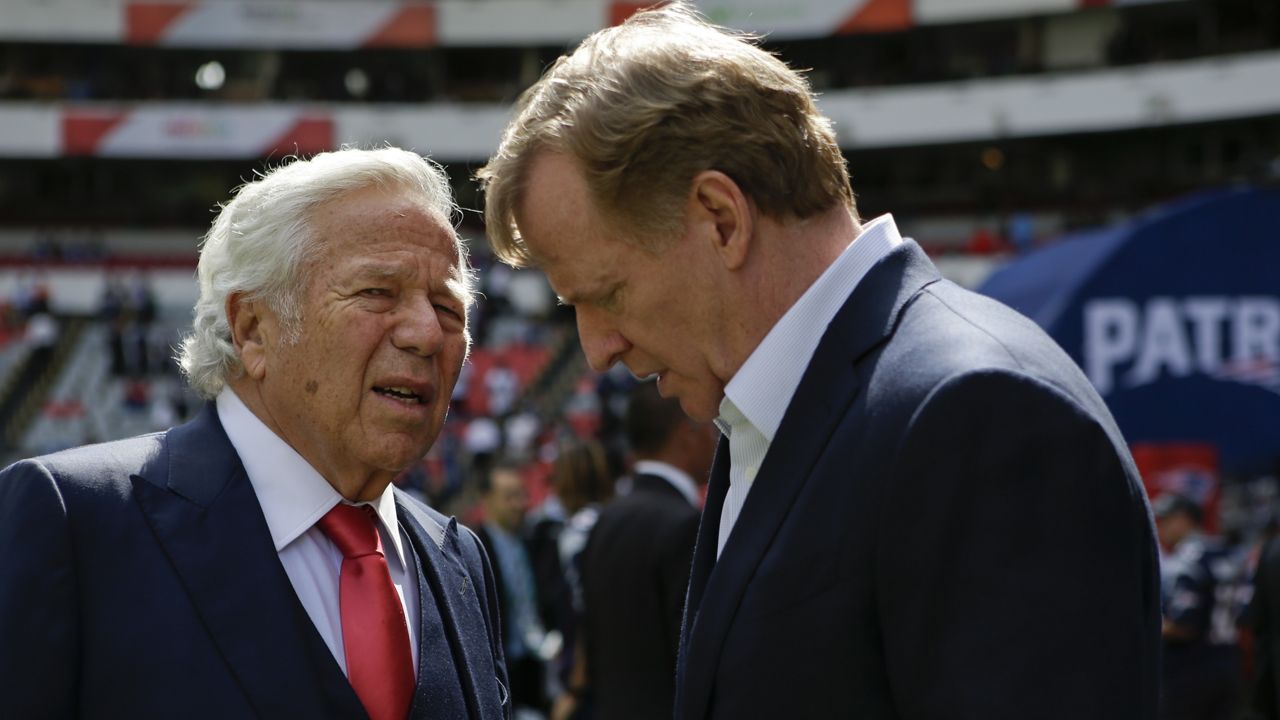In a trial nearly a decade in the making, the NFL will begin this week defending its out-of-market TV package against antitrust allegations.
What You Need To Know
- In a trial nearly a decade in the making, the NFL will begin this week defending its out-of-market TV package against antitrust allegations
- In a class-action lawsuit, the plaintiffs representing millions of residential and commercial subscribers to the NFL “Sunday Ticket” package argue the league’s 32 teams joined forces to agree to a multibillion-dollar package that eliminated competition and drove up prices for football fans
- Jury selection in the trial began Wednesday in U.S. District Court in Los Angeles, with opening arguments to follow in the coming days
- NFL Commissioner Roger Goodell, Dallas Cowboys owner Jerry Jones and New England Patriots owner Robert Kraft could be among the witnesses called to the stand
In a class-action lawsuit dating back to December 2015, the plaintiffs representing millions of residential and commercial subscribers to the NFL “Sunday Ticket” package, then available exclusively through DirecTV, argue the league’s 32 teams joined forces to agree to a multibillion-dollar package that eliminated competition and drove up prices for football fans.
Jury selection in the trial began Wednesday in U.S. District Court in Los Angeles, with opening arguments to follow in the coming days. NFL Commissioner Roger Goodell, Dallas Cowboys owner Jerry Jones and New England Patriots owner Robert Kraft could be among the witnesses called to the stand.
Under the NFL’s model, regional and select out-of-market games are made available on broadcast and cable networks — and recently streaming services have entered the picture.
“Sunday Ticket,” however, has been an option for fans who live in a different market than where their favorite team plays — for example, a Kansas City Chiefs fan in Phoenix. It also appeals to fervent football fans not satisfied with the choice of games available to them on broadcast and cable.
“The anticompetitive effects of this agreement are clear and significant,” the plaintiffs argue in the lawsuit. “The agreement has restricted the availability of live video presentations of regular season NFL games.”
The defendants are the NFL, its 32 teams and DirecTV, although the satellite TV provider is excluded from the trial pending arbitration.
After being on DirecTV for nearly 20 years, “Sunday Ticket” moved to Google’s YouTubeTV last season. For residential subscribers, the package costs $349 for the season for YouTube TV subscribers, and $449 for those without YouTubeTV. Google is not a defendant in the case.
The plaintiffs argue that no other major professional sports league has an agreement like the NFL’s. The NBA, the NHL and Major League Baseball have their own out-of-market packages, but unlike the NFL, each team negotiates to have their games carried within their markets. Those leagues also have not restricted their packages to a single provider as the NFL has done.
Those suing the NFL — which include pubs in San Francisco and New York — point to a 2010 Supreme Court ruling that found each team “is a substantial, independently owned, and independently managed business,” competing with its rivals “not only on the playing field, but to attract fans, for gate receipts and for contracts with managerial and playing personnel,” as well as “in the market for intellectual property.”
The plaintiffs are expected to ask the jury to award $7 billion in damages, which could potentially be tripled because it involves antitrust law.
The case has been tied up by endless court filings for 8½ years. It was even dismissed at one point before the ruling was overturned.
If the NFL loses the case, anyone who subscribed to “Sunday Ticket” between June 17, 2011, and Feb. 7, 2023, could be eligible for a cut of the damages.
It could also upend the way the NFL does business. Currently, TV revenue is distributed evenly among the teams. If the verdict opens the door for teams to sell their own broadcast rights, large-market teams could gain a competitive advantage over smaller market teams by generating more revenue.
The NFL declined to comment on the trial Wednesday.
In a joint statement of the case filed to the court last week, the league denied any wrongdoing and insisted the “Sunday Ticket” package “helps ensure that consumers across the United States have broad access to watch competitive and exciting NFL games at various prices, including multiple live games on free broadcast television every week during the regular season.”

